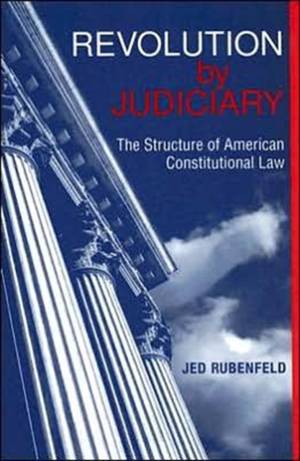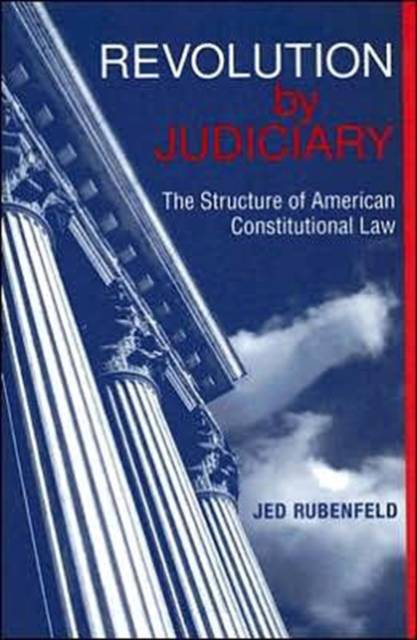
- Retrait gratuit dans votre magasin Club
- 7.000.000 titres dans notre catalogue
- Payer en toute sécurité
- Toujours un magasin près de chez vous
- Retrait gratuit dans votre magasin Club
- 7.000.000 titres dans notre catalogue
- Payer en toute sécurité
- Toujours un magasin près de chez vous
Revolution by Judiciary
The Structure of American Constitutional Law
Jed Rubenfeld
Livre relié | Anglais
127,45 €
+ 254 points
Description
Although constitutional law is supposed to be fixed and enduring, its central narrative in the twentieth century has been one of radical reinterpretation--Brown v. Board of Education, Roe v. Wade, Bush v. Gore. What, if anything, justifies such radical reinterpretation? How does it work doctrinally? What, if anything, structures it or limits it?
Jed Rubenfeld finds a pattern in American constitutional interpretation that answers these questions convincingly. He posits two different understandings of how constitutional rights would apply or not apply to particular legislation. One is that a right would be violated if certain laws were passed. The other is that a right would not be violated. He calls the former "Application Understandings" and the latter "No-Application Understandings." He finds that constitutional law has almost always adhered to all of the original Application Understandings, but where it has departed from history, as it did in the Brown decision, it has departed from No-Application Understandings. Specifically, the Fourteenth Amendment did not prohibit racial segregation, so Rubenfeld argues that the Supreme Court had no problem reinterpreting it to prohibit it. It was a No-Application Understanding. This is a powerful argument that challenges current theories of constitutional interpretation from Bork to Dworkin. It rejects simplistic originalism, but restores historicity to constitutional theorizing.Spécifications
Parties prenantes
- Auteur(s) :
- Editeur:
Contenu
- Nombre de pages :
- 241
- Langue:
- Anglais
Caractéristiques
- EAN:
- 9780674017153
- Date de parution :
- 30-06-05
- Format:
- Livre relié
- Format numérique:
- Genaaid
- Dimensions :
- 162 mm x 249 mm
- Poids :
- 508 g







